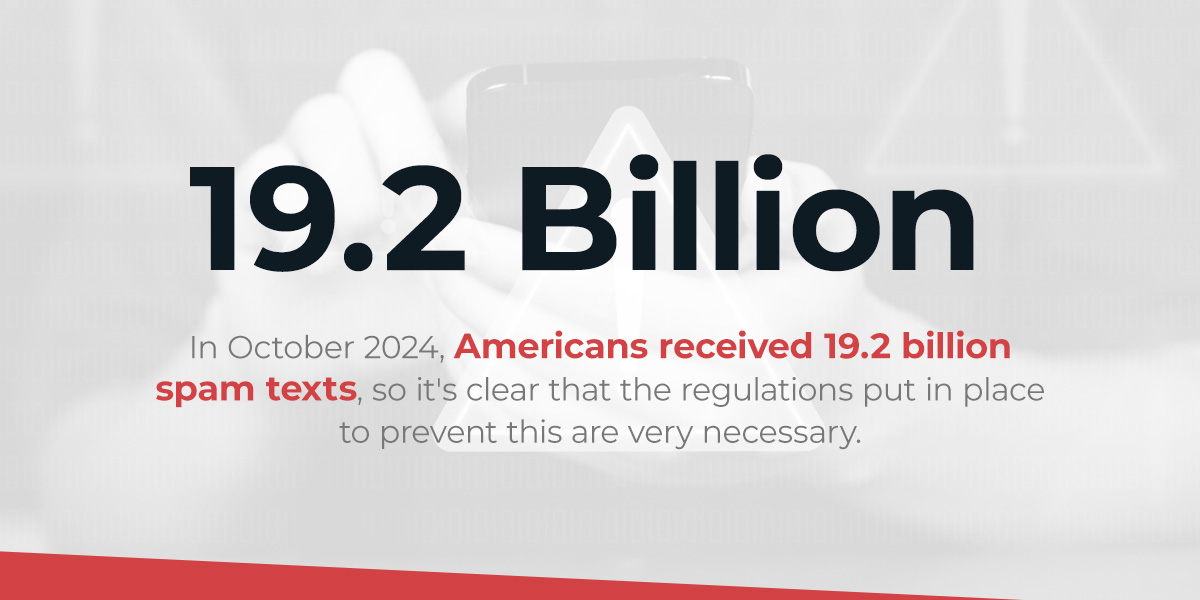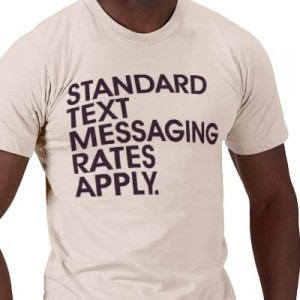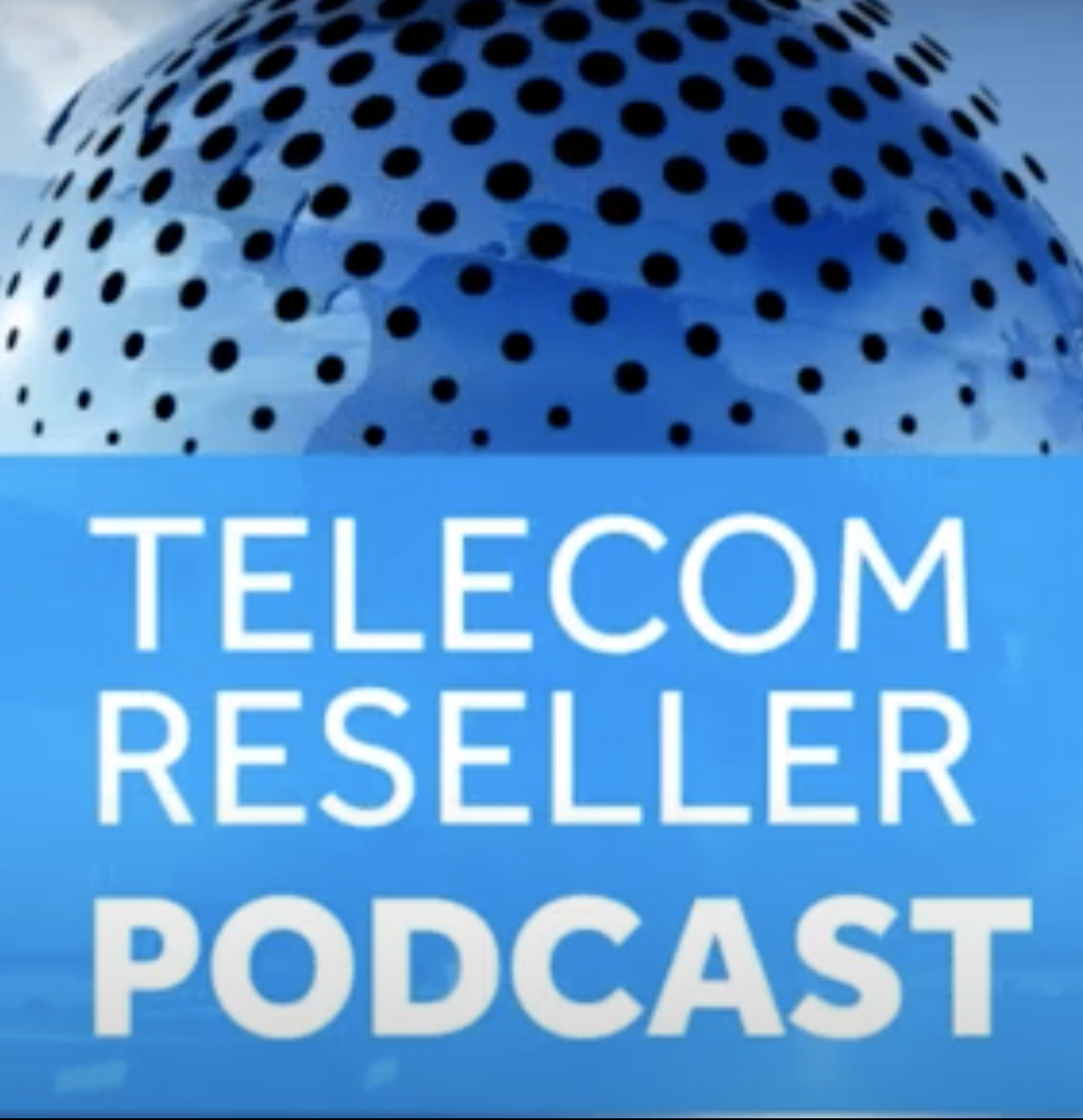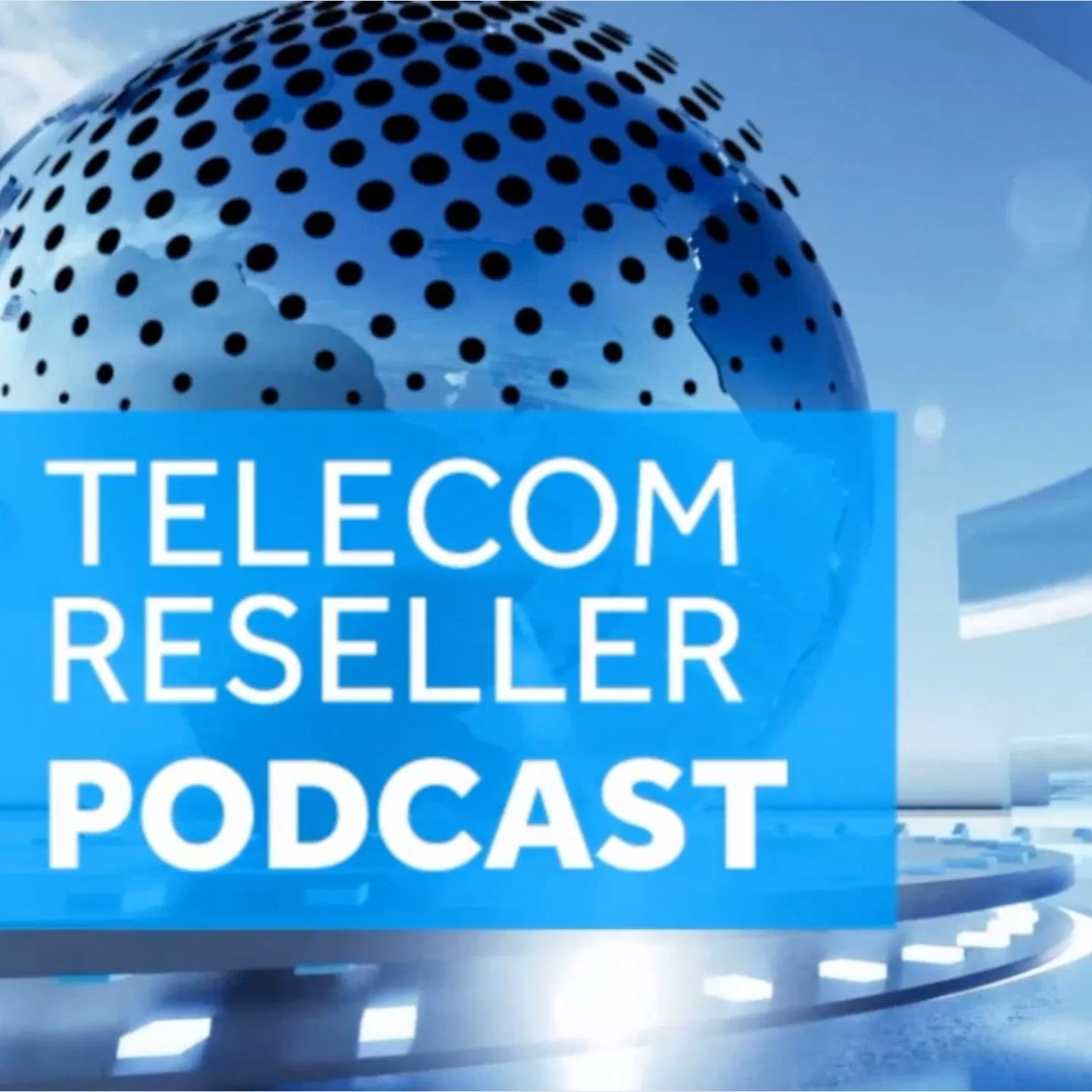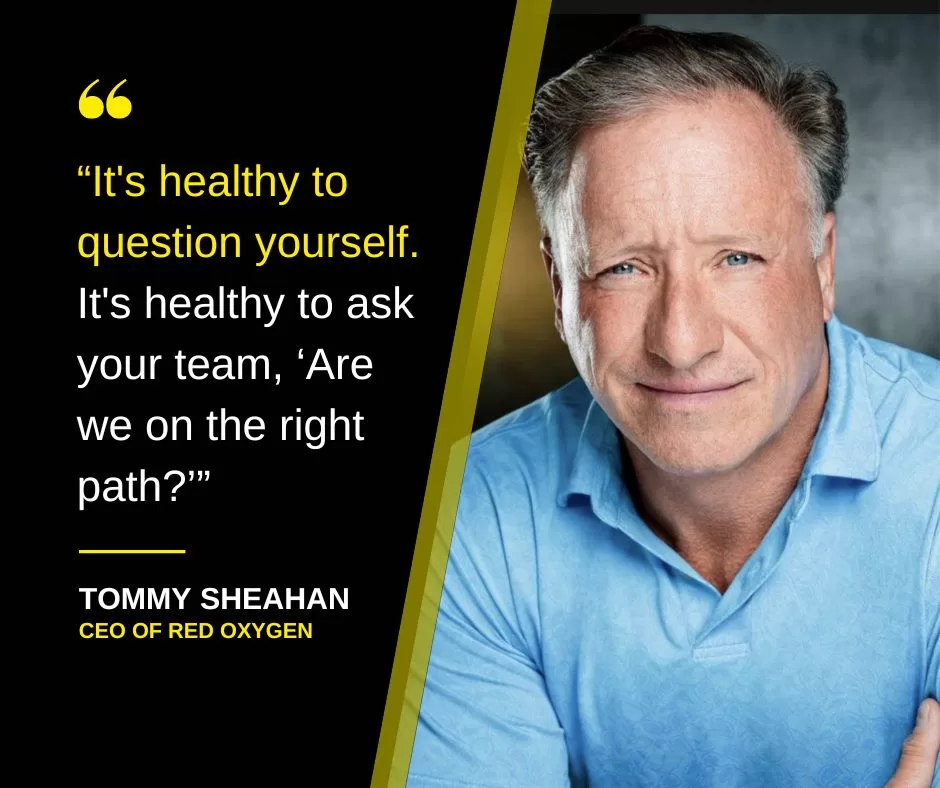
Short message service (SMS)—or text messaging—is still one of the fastest-growing forms of communication for businesses globally. Because many customers prefer using text messages over other forms of messaging, more companies are switching to SMS as their chosen communication strategy.
However, setting up SMS campaigns is more complex than just collecting your clients’ contact details and sending them a never-ending flow of texts. Specific laws and regulations are in place to ensure that businesses don’t abuse this service. For companies new to text messaging, it’s vital to understand compliance laws before diving headfirst into an SMS marketing campaign.
What Is SMS Compliance?
SMS compliance means adhering to the guidelines and laws established by organizations and legislatures that regulate text messaging. The procedures for how businesses can engage with consumers using SMS are complicated, since companies need to adhere to multiple sets of rules in the different countries they send messages. For example, in the U.S. the Telephone Consumer Protection Act (TCPA) covers certain aspects, and the newer 10DLC regulations detail others. Let’s review the differences.
Why Does SMS Compliance Matter?
The primary reason for staying SMS compliant is to follow the law. Businesses use texts for various tasks, from two-way texting to appointment reminders to bulk messaging. While SMS has changed the technological communication landscape for businesses and customers alike, companies need to ensure that they aren’t taking advantage of these systems. They must protect and respect their customers’ privacy to comply with the laws surrounding text. If your company is caught breaking any rules, the agencies in charge of enforcing these regulations may launch an investigation. Some consequences may include paying a fine or having your license revoked. Failure to comply may also cause message filtering and your carrier blocking your number.
Additionally, compliance is good for your business. If your organization isn’t SMS compliant, you’re probably overloading existing or potential customers with unsolicited texts, meaning you could be driving them away. Most of the time, the idea behind texting your clients is to either build good relationships with them or market your business. Constant unwanted texts will likely have the opposite effect.
How Is the FCC Involved?
The Federal Communications Commission (FCC) is the U.S. governing body that set forth the Telephone Consumer Protection Act, the primary federal law responsible for ensuring that marketers follow specific calling and SMS guidelines. The TCPA outlaws any person or business from phoning or texting someone’s mobile device using auto dialing or a prerecorded voice. It defines an auto dialer as equipment that uses a random or sequential number generator to store and dial numbers.
The TCPA also covers the rules for having prior written consent before a marketer can send a text. Back in 1991, this act covered landline telephone numbers and faxes—and yes, some still use fax machines today, although not many. Later, rule-makers added SMS and the Do Not Call List to the act.
The only exceptions to the law are during an emergency or when the caller has received prior consent. Clients need to willingly receive text messages from your business by agreeing to an opt-in clause beforehand. They can give consent electronically with digital signatures.
ng All About?
The FCC continues to explore potential text message regulations to block illegal messages and apply caller ID standards to SMS. Specifically, the FCC released a Notice of Proposed Rulemaking (NPRM) in September 2022 that addresses text messaging similar to how it deals with robocalling. As a basis for the new FCC SMS regulations, the FCC indicates that consumers receive more illegal and unwanted text messages that jeopardize their privacy now than ever.
The new rule would require mobile carriers to block texts from unused, unallocated, invalid or do-not-originate (DNO) numbers. The NPRM also explores whether spoofing is a significant problem with text messaging.
What Is the FCC’s Notice of Proposed Rulemaking All About?
The FCC continues to explore potential text message regulations to block illegal messages and apply caller ID standards to SMS. Specifically, the FCC released a Notice of Proposed Rulemaking (NPRM) in September 2022 that addresses text messaging similar to how it deals with robocalling. As a basis for the new FCC SMS regulations, the FCC indicates that consumers receive more illegal and unwanted text messages, which jeopardize their privacy now than ever. In October 2024, Americans received 19.2 billion spam texts, so it’s clear that the regulations put in place to prevent this are very necessary.
The new rule would require mobile carriers to block texts from unused, unallocated, invalid or do-not-originate (DNO) numbers. The NPRM also explores whether spoofing is a significant problem with text messaging.
What’s the Difference Between Robocallers and A2P?
A robocall is a voice or text message dialed automatically by a computer. It delivers prerecorded or templated messages to unsuspecting recipients, often in the millions per day. Scammers and spammers usually send these messages with ill intent to gain personal or financial information.
Application-to-Person (A2P) messages are intentional SMS sent from a business to their customer through a software application. They offer an efficient and effective—not to mention an economical—way for organizations to send SMS without having to initiate them from a personal mobile number. Some texting software allows these messages to be customized so that recipients don’t mistake the texts for spam. This personalization also allows businesses to message multiple people without typing out a new message each time.
How Is 10DLC Compliance Different?
10DLC compliance is specific to one type of delivery number used for A2P SMS, these compliance requirements are also unique to messages being sent in or out of the U.S. only, at the moment. 10DLC refers to a 10-digit code that enables businesses to send texts. A benefit of a 10DLC is that they are often local numbers and look like a standard U.S. 10-digit phone number, allowing customers to feel more comfortable receiving and responding to them. No one wants an SMS from their dentist coming from a different state. After all, 80% of U.S. citizens won’t answer a call if it’s a number they don’t recognize, so they may also see texts from random numbers as a red flag.
U.S. carriers have had to increase awareness of who’s using their networks. And, in trying to keep scammers from overloading them, they’ve set some new regulations in place, thus creating 10DLC compliance.
To become compliant, businesses must register their company information and associated messages they’ll be sending on their 10DLC with The Campaign Registry™ (TCR), which is the agency selected by the major U.S. carriers as the authority for business messaging via 10DLC.
These businesses and messages—or campaigns—are then assigned unique identifiers, allowing the carrier to know who’s sending them and their legitimacy and helping them determine the speed and quantity they’ll allow for that number.
To be 10DLC compliant, you also have to comply with FCC/TCPA regulations—they go hand in hand to ensure the health of the messaging ecosystem.
Simple Steps to Help You Stay Compliant
All of this legal jargon can feel intimidating, and you may even consider avoiding SMS marketing and communication at all costs. However, there are a few easy procedures that you can implement to ensure you stick to all the rules:
- Respect your clients: The main objective behind these regulations is to protect and respect people and their privacy. When using SMS communication, ask yourself whether it’s respectful and necessary. Put yourself in their shoes, and think about if the SMS you’re sending would be unwanted if you were in their position.
- Don’t overdo it: You may think that more is better, but that’s not the case with SMS. Excessive messaging may get you in trouble with regulatory agencies, and even if it doesn’t, it may cause clients to unsubscribe from your services.
- Stay up to date: Check in with the regulations frequently so that you know when there are any changes. It’s also a good idea to look into any proposed legislation that will affect your processes and establish contingencies.
- Use a reputable SMS provider: If you’re using a reputable provider they will likely have measures in place to help you stay compliant, that is if you are doing the work on your end, as well.
How Red Oxygen Can Help With 10DLC Registration
If all these guidelines and compliance laws sound challenging, there is an easy solution. CompleteSMS will eliminate the hassle by handling the 10DLC registration process for you and communicating with your carriers to ensure the successful delivery of your messages. Whether you use our API, Bulk SMS, Outlook or Gmail add-ins to send SMS, we can help you achieve FCC SMS compliance, even as the regulations change.
Registering your business is only the first step in complying with 10DLC rules. You must send meaningful texts that align with your campaign and your intended recipients’ interests. If your messages appear as spam, your carrier could block them. Since the SMS world is our industry, we’re always up to date on any 10DLC regulations, so if you’re unsure about 10DLC changes or registration, our professionals have it covered.
Contact the Experts at Red Oxygen Today
We are committed to handling all your SMS needs, regardless of your business or campaign type. Our knowledgeable and experienced team can help you navigate the rules associated with 10DLC and any other SMS challenges you face. You can connect with us online today to learn more about our offerings and how they can benefit your organization. Or, if you’re ready to switch to text management software that makes it easy for you to comply with FCC text message regulations, go ahead and request a demo to see how our service works!


